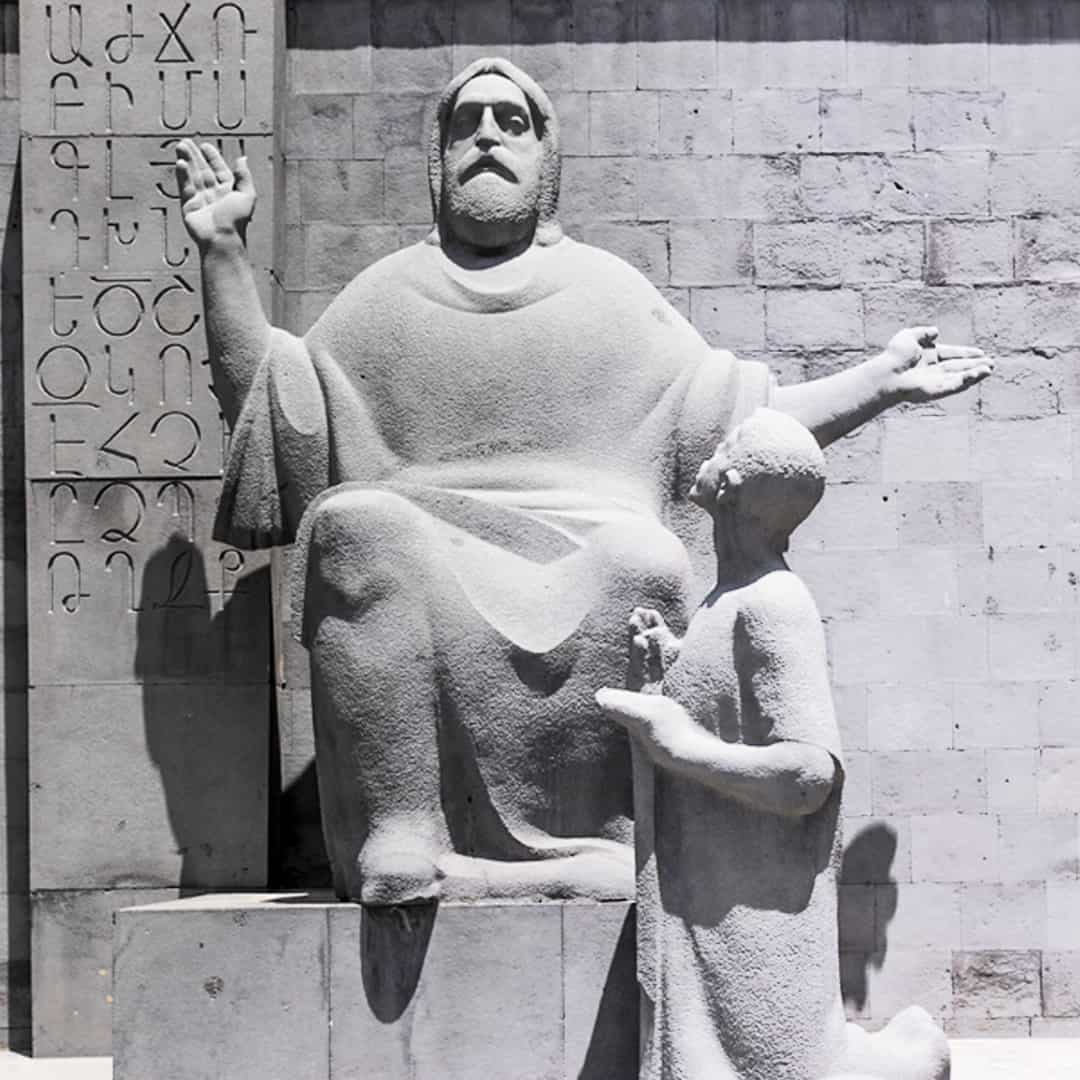After Night, There Is Always Daylight

Weeks ago, a reader brought up the question about the relation of the Armenian words ցերեկ (tsereg “daylight”), երեկոյ (yerego “evening”), and երէկ (yereg “yesterday”). While the first two are obviously related, we could not imagine that they would also be linked to the latter.
Indeed, they are. The root of the first too is երեկ (yereg), which meant “evening” in Classical Armenian. It is a native Armenian word, derived from the Proto-Indo-European root *reguos (“darkness”), and there are words in other Indo-European languages coming from the same root, for instance Greek erebos (“the place of darkness between earth and Hades”), Gothic riqis (“dark”), Sanskrit rajas (“dark, mist, smoke, vapor”), rajane (“night”), etcetera. It became the source of the words երեկոյ (yerego) and իրիկուն (irigoon), which are used today with the same meaning.
The time of the day that goes from dawn to dusk is appropriately called tsereg in Armenian. The prefix ts at the beginning of the word was used in Classical Armenian with the meaning “until,” in the same way that today we use the word մինչեւ (minchev). The prefix is still around in Modern Armenian, and we utilize it in words like ցտեսութիւն (tsudesootioon “good bye,” literally “till seeing”), ցմահ (tsumah “to life,” literally “until death,” used for instance in sentencing), or ցայսօր (tsaysor “until today”). Therefore, the combination of ts and yereg yields tsereg, covering daylight.
How come the homophone words երեկ (yereg) and երէկ (yereg) are connected? The great linguist Hrachia Adjarian managed to give a convincing explanation of that connection with the example of other languages, where the ideas of “yesterday” and “tomorrow” derive from “evening” and “morning.” The closest example for an English reader (remember the Old English word morgen “morning”) would be the German word Morgen, which means both “morning” and “tomorrow, future.” The opposite example would be that of the words vecher (“evening”) and vchera (“yesterday”) in Russian.
Adjarian even noted that the word irigun in the Armenian dialect of Tiflis (Tbilisi) did not only mean “evening,” but “yesterday evening.”
Readers who do not know Armenian script should take into consideration that the spelling of both words is slightly different: the sound e is written with yech in the former and e in the latter. So far, nobody has been able to explain this difference of spelling.
Meanwhile, we should always remember that words have this marvelous ability to take us into unexpected places and this is why always what we say and what we say matters.
